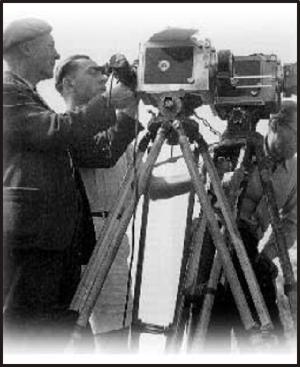Cinema
Jacques Tati's world of Mr Hulot
Zahir Raihan Film Society screens six films by Jacques Tati at the Alliance Francaise of Dhaka
Sabbir Chowdhury
Jacques Tati is considered as the French Buster Keaton or Charlie Chaplin. He is the best French comic actor since Max Linder. As an actor and an auteur filmmaker, Tati has shown immense talent in portraying characters down to their essential comic details. The prolonged production of his films can be compared to those famous for multiple and meticulous takes of a single shot,like his compatriot Robert Bresson or Italian Michelangelo Antonioni. This often led to belated making of the films which always exceeded the production deadline as well as the budget. In a career spanning over three decades, Tati only made six feature films and a few shorts! One of the features was made for the television. Jacques Tatischeff, of Russian-Dutch-Italian-French descent, was born on October 9, 1908. His birthplace was Le Pecq in France. Though he received art training so that he could enter his father's art restoration and picture-framing business, he was drawn by sports, especially rugby which he played professionally. He discovered his talent for entertaining at rugby club suppers, and went into music halls, where his speciality was a comic mime of sportsmen. He acted in several comic shorts in the 1930s, which included Watch Your Left (1936) by Rene Clement. He then acted in small roles in two films by Claude Autant-Lara in the mid-1940s. He directed his own short School for Postmen in 1947. This short feature impressed the audience as well as the producer so much that he wanted it to be expanded into Tati's first feature Jour de fete (Holiday, 1949). Les Vacances de Monsieur Hulot (Mr Hulot's Holiday, 1953) followed. The film saw the creation of a new comic hero Mr Hulot, who is as distinctive and endearing as Chaplin's Charlie. This was followed by Mon Oncle (My Uncle, 1958), Playtime (1968), Trafic (Traffic, 1971) and Parade (1974). The comic character Mr Hulot comes recurrently in his films. Tati says about his comedy, "At heart, Hulot is never aware of what's going on. Charlie, faced with a difficulty, something that impedes him, has ideas, finds a way out, modifies and interpretes the impediment. Hulot never does anything intentionally, assumes nothing, constructs nothing." In Mr Hulot, Tati created a gangling, awkward character whose peculiar gait and odd misadventures set him apart from the gadget-obsessed world around him. Mr Hulot remained Tati's alter-ego in four of his six feature films. Hulot's universe is an island of sanity and warm humanity surrounded by a sea of antiseptic modernity. Hulot dislikes modernity as did his creator Jacques Tati. An exclusive use of the long shot gives an unforced quality to the comedy, and shows the intimate relation of the comic character to his surroundings; in the same way, although dialogue itself is minimal, the soundtrack is rich in subtle absurdities. The originality and the unique quality of his work assured him of a leading position in the pantheon of movie comedy. Jacques Tati died in 1982, before realising his seventh feature film project Confusion, which he couldn't even start due to unavailabity of fund or a producer! Sabbir Chowdhury, a film critic and activist, teaches in the Department of English at Jahangirnagar University, Dhaka.
|

Jacques Tati, centre, looking through the camera |